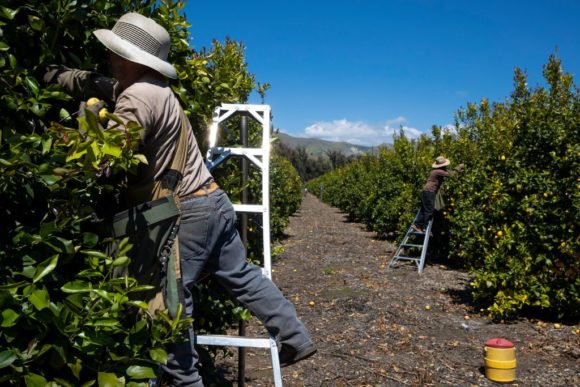New emergency rules adopted on Wednesday regarding temporary farmworker housing are designed to help increase worker safety and reduce the spread of COVID-19, those who created the rules say.
The rules detail specific steps required at farms where temporary workers live in licensed temporary housing facilities.
The emergency rules, a joint effort between the state departments of Labor & Industries and Health, take effect on May 18, and spell out several required steps to increase physical distancing, improve cleaning and sanitizing, and reduce the chance of a large outbreak or spreading of coronavirus related to temporary worker housing at farms.
Under the emergency rules, employers must provide occupants of temporary worker housing with cloth face coverings and ensure physical distancing at housing sites, which includes all cooking, eating, bathing, washing, recreational, and sleeping facilities.
Farms are required to frequently clean and disinfect surfaces in housing, and must identify and isolate workers with suspected or confirmed cases of COVID-19.
The emergency rules include specific physical distancing requirements for beds and bunk beds. Beds must be at least 6 feet apart with occupants sleeping head to toe. Beds can be closer when they’re separated by a floor to ceiling temporary non-permeable barrier; a minimum aisle of 3 feet between the bed and barrier is required.
Farms can only use the lower bunk of bunk beds, unless they use a “group shelter” option. Under that part of the rules, similar to situations with immediate family members, bunk beds are allowed if a group of workers (no more than 15) stays together and is separated from others for housing, work, and transportation. The group must keep the same individuals, cannot change members, and cannot live or work closely with others.
Employers are required to submit revised temporary worker housing management plans to the state Department of Health no later than May 28, which demonstrate how they will comply with the emergency rules requirements.
Topics Agribusiness Washington
Was this article valuable?
Here are more articles you may enjoy.



 Florida’s Commercial Clearinghouse Bill Stirring Up Concerns for Brokers, Regulators
Florida’s Commercial Clearinghouse Bill Stirring Up Concerns for Brokers, Regulators  Maine Plane Crash Victims Worked for Luxury Travel Startup Led by Texas Lawyer
Maine Plane Crash Victims Worked for Luxury Travel Startup Led by Texas Lawyer  Allstate CEO Wilson Takes on Affordability Issue During Earnings Call
Allstate CEO Wilson Takes on Affordability Issue During Earnings Call  Allstate Doubles Q4 Net Income While Auto Underwriting Income Triples
Allstate Doubles Q4 Net Income While Auto Underwriting Income Triples 

